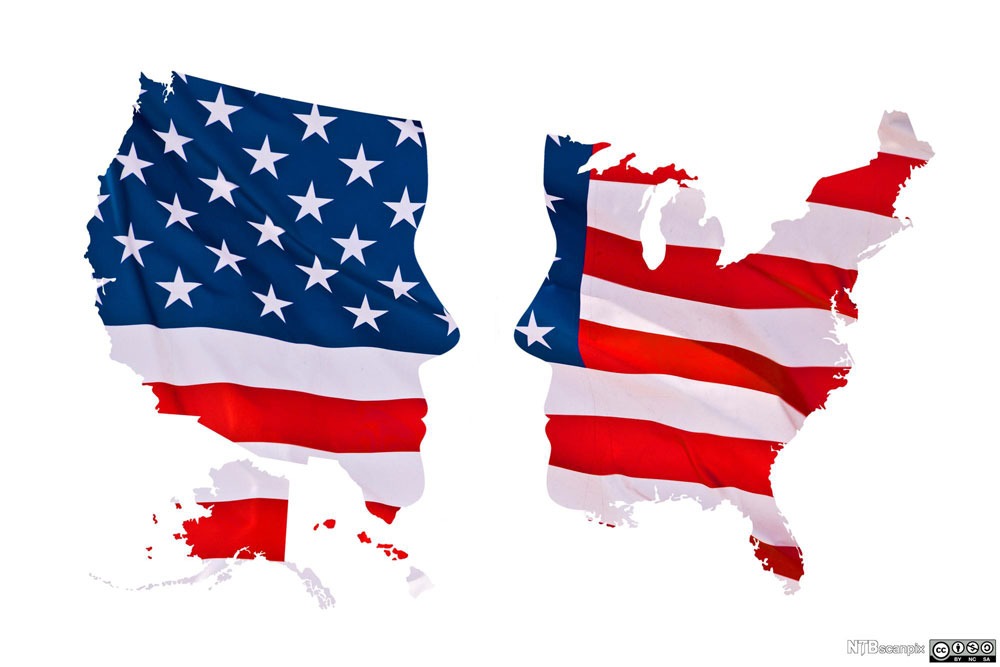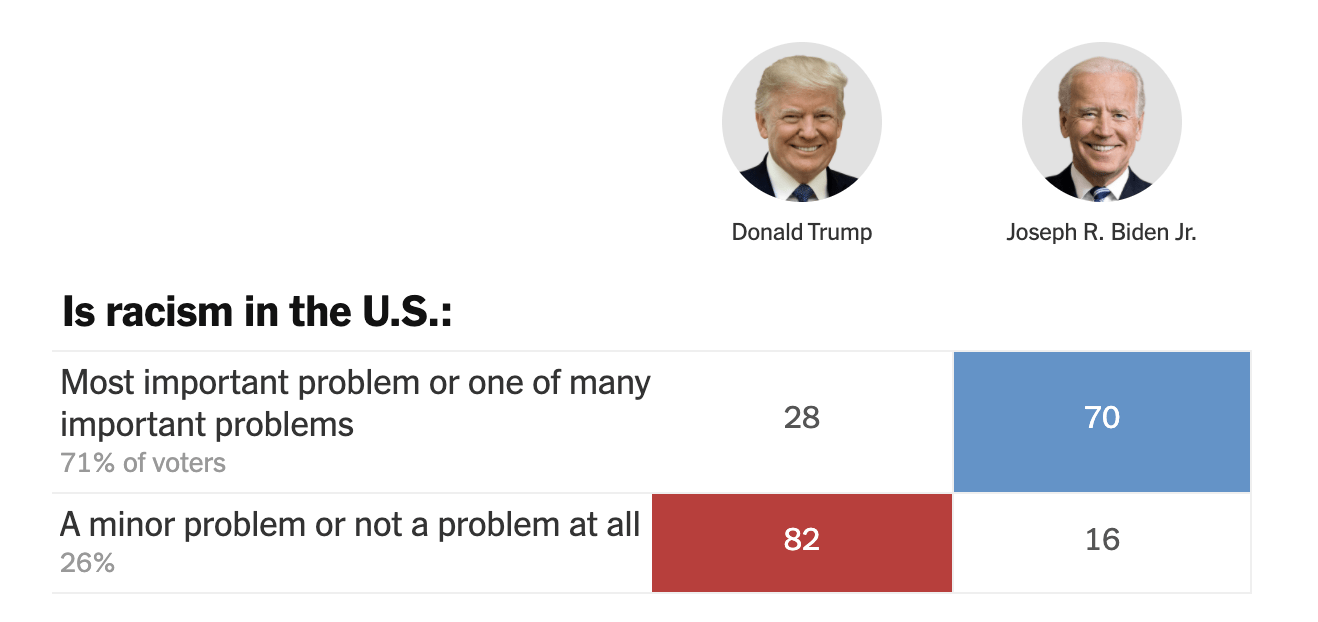
November 7, 2020; Washington Post, New York Times, and Vox
“This is the time to heal in America.”
So declared President-Elect Joe Biden in his victory address, delivered on Saturday night in Wilmington, Delaware. The message is an important, but also challenging one. The hotly contested presidential election attracted record-setting numbers of voters, but the economic, racial, and coronavirus shocks of recent months have yet to repair the political schisms that have made effective governance difficult to achieve. In short, the difficulty of achieving healing is part of what makes that goal so vital and necessary.
It is not exactly news that the US population is divided into starkly different political camps. If this contention needs confirmation, exit polls reported by the New York Times provide it. The voters who stood with President Donald Trump and the Republican Party listed the economy, crime, and safety as their top concerns. For the majority that supported Biden and the Democratic Party, racial inequity, the pandemic, and healthcare policy were their top concerns. There is also an obvious demographic divide—white voters, in their majority (57 percent), backed Trump; people of color overwhelmingly backed Biden.
With respect to the pandemic, now hitting record levels, as Vox reports, “In the very places with the greatest density of new COVID-19 infections nationwide—Utah, Montana, Wyoming, North Dakota, South Dakota, Nebraska, Indiana—voters cast their ballots in favor of Trump, sometimes by large margins.” These numbers suggest that efforts by Biden to belatedly implement a coordinated federal public health response to contain the pandemic’s spread could face considerable local resistance.
Sign up for our free newsletters
Subscribe to NPQ's newsletters to have our top stories delivered directly to your inbox.
By signing up, you agree to our privacy policy and terms of use, and to receive messages from NPQ and our partners.
There are also stark divisions between Trump and Biden voters regarding the nation’s ongoing confrontation with its current and historic racism, as the below poll numbers reveal:

COVID-19 remains a challenge, as do the struggling economy and the need to overcome our country’s structural racism. Each demands extraordinary actions, and leaders able to guide a nation through uncertain territory to undertake personal investment and sacrifice.
What does leadership demand? Health experts like Shannon Monnat, professor and co-director of the Policy, Place, and Population Health Lab at Syracuse University, observe that, “The choice between controlling the virus and restarting the economy is a false one.” But clearly the connection between controlling the virus and economic recovery has not been accepted by all. Building a narrative that establishes those links in the minds of Americans of all political persuasions is critical.
Can we find a way to bridge this divide? At NPQ, we have talked about the hard work involved reframing narratives before, and the need for cultural rebuilding based on lifting up stories of belonging. Our own Cyndi Suarez has written about the need for new infrastructure.
In his rhetoric, the way Biden defines the task ahead is “restoring the soul of America.” It is a vitally important objective. But it will take the efforts of more than Biden and his incoming administration to get us there.—Martin Levine












